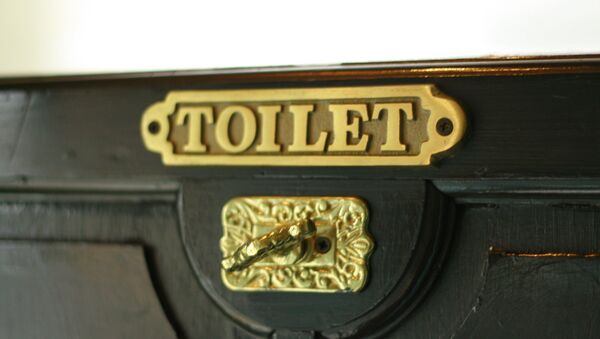Analysis undertaken by the Thames Water authority in London found that US$19.7 million (£13m) worth of precious metals, primarily gold, were found in Britain's sewerage systems on a yearly basis.
Researchers noted that the amount of gold found in sewerage systems was in some cases equivalent to the amount of gold found in working mines.
Cardiff University geologist Hazel Prichard, who has been working alongside the Thames Water team, told UK newspaper The Times that the unexpectedly high levels of precious metals were found by investigating the incinerators designed to burn off sludge:
"We were stunned. They were all consistently high in gold."

Also, people with gold teeth are also thought to contribute to the gold buildup every time they brush their teeth.
Along with household gold running down the sink, investigators say that cars are also responsible for depositing tiny bits of platinum into drains through emissions control devices, like catalytic converters.
The surprising amount of gold found in sewerage systems is comparable to that in operating gold mines, Dr Prichard said.
"It's one to three parts per million, which is huge. Goldmines are economical at one to three parts per million. The advantage is, it doesn't need to be mined… [or] crushed. The two big costs in getting gold out of rocks is mining and crushing them. It's environmentally friendly. It's gold, that's what matters."
Officials in London now plan on working out how to extract the gold, with reports that a sewage facility in Tokyo has already started extracting gold from sludge.


